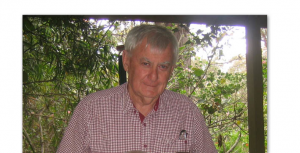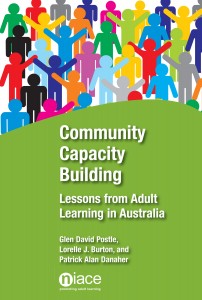Professor Glen Postle AM talks about the ideas and inspiration for a new book on community capacity building.
On the face of it, you’d think that Toowoomba was doing well. It’s poised to undergo an economic boom with coal seam gas mining. But Professor Glen Postle warns economic progress can often be at the cost of community connection. Regional and rural towns need strong and vibrant communities now more than ever.
When it comes to diagnosing the health of a town or region, the health of relationships between people often gets ignored in favour of how well the area is doing economically. Professor Postle argues that this preoccupation with material gain over social connectedness is responsible for many of the changes and threats to communities.
‘I don’t want to pathologise prosperity, but over the last five to 10 years the focus on economic growth has produced a kind of aggressive individualism that’s changed the way we think about ourselves and how we think about each other.’
Changes to the workforce also contribute to a sense of dislocation. Highly mobile workforces like ‘fly-in, fly-out’ employees and the replacement of permanent staff with casuals create feelings of instability, transience and a sense of social disconnection.
The social costs of economic development in a community can strain community ties and worsen social, physical and mental health problems especially among groups that feel outside of the mainstream: older people; new migrants; young people who are on the margins.
For Glen Postle, Lorelle Burton and Patrick Danaher, all academics from the University of Southern Queensland, community capacity building is a way to restore the balance between individualism and the community.
Their book ‘Community Capacity Building. Lessons from Adult Learning in Australia’ draws on local and international examples to identify how regional and rural communities can sustain themselves and how community members and university academics can create useful knowledge together.

In the case of Toowoomba, they document the development and impact of partnerships − between higher education, government, industry and community groups and agencies − on people who feel marginalised, invisible or undervalued such as disadvantaged youth, older men, and refugees.
‘By teaming up with other local organisations you bring together an alliance of people and your collective impact is that you bring a whole lot of knowledge and experience to bear on a problem.’
The authors believe that universities have an important role in contributing to the health of their community when communities are fragmenting and relationships are fraying. Professor Postle says he’d like to see university research embrace the concept of civic mindedness in new ways. ‘Research in the social sciences should be measured not by the number of academic articles an academic publishes but by the impact of his or her research in the community and on the building of social capital.’
Community Capacity Building tells the stories of collaborative community project partnerships. Each chapter is written by an academic and a community member and describes what they learnt from each project. Case studies include:
- Working with disadvantaged youth − Toowoomba Flexi School
- Participation of older men in the community − Toowoomba Older Men’s Network (TOMNET)
- Inter-generational mentoring
- Resettlement of Sudanese people from refugee backgrounds
- Online communities: GraniteNet
Community Capacity Building: Lessons from Adult Learning in Australia
Glen David Postle, Lorelle J Burton and Patrick Alan Danaher is available from Footprint Books. ALA members receive a 20% discount and free freight on all books on the Footprint website. Contact Jacqui at ALA for the discount code.

